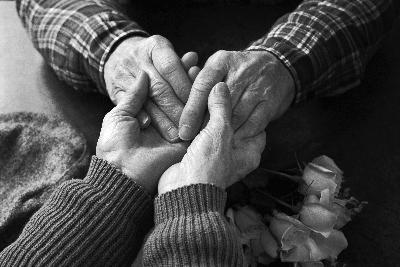“Sundowning”
Sundowning is a pattern of behavior that occurs in the evening after the sun goes down in elderly people with dementia or Alzheimer’s. You may notice that your charge, who may be somewhat lucid during daylight hours, loses ground in the evenings. My mother exhibited this behavior in varying degrees for about six months before she died. I did not understand what was happening at the time and once I did it was easier to handle.
The first time I experienced sundowning was one evening while I was visiting Mom at her apartment in the retirement community where she lived. She had not been doing well and recently had a fall. As we sat together, eating dinner and watching TV, she abruptly turned to me and asked, “Where is your Dad?”
My father had been dead for eight years at the time. I studied her face trying to discern what information she was looking for. She was quite herself and lucid during the day at that time and I was caught completely off guard. I didn’t know how to respond. Should I tell her the truth or go along with her delusion? I stumbled my way through it that night reminding her that he had died. She looked surprised and upset that no one had told her of his passing. The question resurfaced again and again, in addition to others.
Sometimes I merely said, “He’s out” and she would go back to whatever it was she was doing. Other times she would push and prod until I told her the truth and then she would cry, every time it was if she was hearing of his death for the first time. It was painful for both of us.
Dementia is usually caused by illness or mini strokes that have damaged a person’s brain cells. Sundowning is thought to occur due to the correspondent damage of a person’s circadian rhythms, the internal clock that regulates the body’s physiological activities over a twenty four hour period.
There are several things you can do to try and minimize the effects of sundowning.
- Keep the person active and awake during the day as much as possible. It makes it easier for them to fall asleep in the evening.
- Plan activities during morning hours and keep the afternoon activities calm and simple.
- When possible make sure the person receives morning sunlight and increase interior light before dusk.
- Keep your loved ones life and surroundings simple and uncluttered. A sudden change or move can make it worse.
- Sometimes confusion can be caused or aggravated by dehydration or hunger. Often the elderly turn away from food and drink, increasing the likelihood of deficiencies.
Most of all, knowing that sundowning exists can be tremendously comforting. I wish I had known then!
Discover more from
Subscribe to get the latest posts sent to your email.




